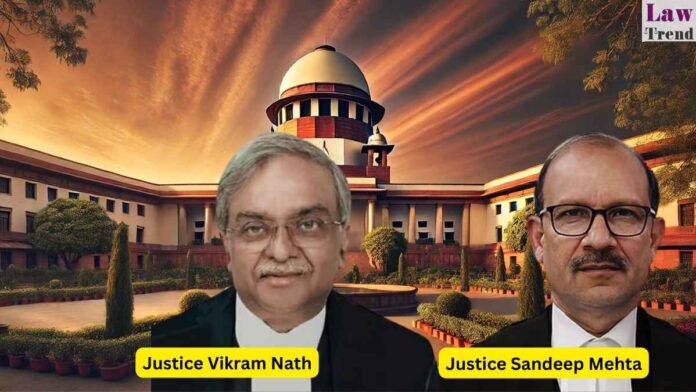The Supreme Court has exercised its inherent powers under Article 142 of the Constitution to compound the offence under Section 138 of the Negotiable Instruments Act, 1881, and acquit the accused, Rajendra Anant Varik. The Court observed that the entire cheque amount and additional compensation, as imposed by the trial court, had already been paid
To Read More Please Subscribe to VIP Membership for Unlimited Access to All the Articles, Download Available Copies of Judgments/Order, Acess to Central/State Bare Acts, Advertisement Free Content, Access to More than 4000 Legal Drafts( Readymade Editable Formats of Suits, Petitions, Writs, Legal Notices, Divorce Petitions, 138 Notices, Bail Applications etc.) in Hindi and English.




